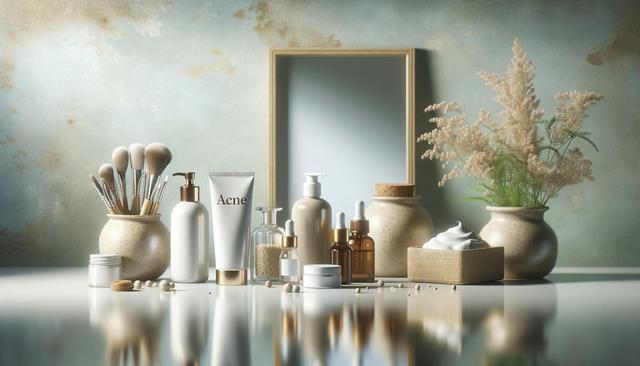What Causes Acne and Why It Matters
Before diving into treatment options, it’s essential to understand what causes acne. Acne occurs when pores become clogged with oil, dead skin cells, and bacteria. This can lead to various types of blemishes, including blackheads, whiteheads, pimples, and cysts. Hormonal changes, certain medications, diet, and stress can all contribute to acne flare-ups. For those dealing with persistent breakouts, especially during adolescence or adulthood, identifying the underlying cause is the first step in learning how to get rid of acne effectively.
Hormonal fluctuations are particularly significant. This is why many people seek a targeted hormonal acne treatment. These treatments typically involve regulating hormone levels through lifestyle changes or medications. Understanding what triggers your acne helps guide you toward the most suitable approach, whether that be home remedies for acne or more advanced prescription options.
Exploring Home Remedies and Natural Solutions
For those looking for gentler or more holistic approaches, natural acne remedies and home remedies for acne provide alternatives to conventional treatments. These methods often focus on reducing inflammation and bacteria without harsh chemicals. Common natural ingredients include:
- Tea tree oil – known for its antibacterial properties
- Aloe vera – soothes and reduces redness
- Apple cider vinegar – used to balance the skin’s pH and fight bacteria
- Honey and cinnamon masks – offer antimicrobial and anti-inflammatory effects
Natural acne remedies are often preferred for mild acne or for those with sensitive skin. However, it’s important to note that results can vary. What works for one person may not work for another, and patience is key. Incorporating these remedies into your acne skincare routine can support overall skin health, especially when paired with good hygiene and a balanced diet.
When to Consider Prescription Medications
While natural options can be effective for some, others may require stronger interventions. Prescription acne medications are often necessary for moderate to severe acne or when over-the-counter treatments fail to deliver results. These medications may include:
- Topical retinoids – help unclog pores and reduce inflammation
- Antibiotics – target acne-causing bacteria
- Oral contraceptives – often used as a hormonal acne treatment
- Isotretinoin – a powerful option for cystic or severe acne
Working with a dermatologist is essential when considering prescription acne medications. They can tailor a treatment plan based on your skin type and acne severity. These options are often among the top-rated solutions for individuals who haven’t seen improvements with other methods. While they may come with potential side effects, proper medical guidance can help manage these effectively.
Building an Effective Skincare Routine
Having a consistent acne skincare routine plays a critical role in managing and preventing breakouts. Even the most effective treatments can fall short if not supported by daily habits that promote skin health. A basic, well-rounded routine includes:
- Cleansing – Use a gentle cleanser twice daily to remove dirt and oil
- Exfoliating – 1–2 times a week to prevent clogged pores (avoid harsh scrubs)
- Toning – Helps balance the skin and remove residual impurities
- Moisturizing – Keeps skin hydrated and prevents overproduction of oil
- Sun protection – Daily SPF is crucial, especially when using certain acne treatments
Consistency is key. Avoid switching products frequently, as this can irritate the skin further. Over time, a dedicated acne skincare routine can enhance the results of both natural and medical treatments. Additionally, avoid touching your face frequently and always remove makeup before bed to reduce the risk of clogged pores.
Combining Approaches for Improved Results
Often, the most effective approach to acne treatment involves a combination of methods. Many individuals find success by integrating home remedies for acne with prescription acne medications under professional supervision. For instance, using a topical antibiotic alongside a calming natural mask can offer both immediate relief and long-term improvement.
Keep in mind that the journey to clearer skin is not always linear. Hormonal fluctuations, stress, and environmental factors can still cause occasional breakouts. This is why a comprehensive strategy that includes hormonal acne treatment, an acne skincare routine, and lifestyle changes is often more sustainable.
- Maintain a healthy diet rich in fruits, vegetables, and low-glycemic foods
- Manage stress through mindfulness or physical activity
- Stay hydrated and get sufficient sleep
Combining these habits with the right treatments enhances your chances of achieving and maintaining clearer skin over time. While no single method works for everyone, a thoughtful, multi-faceted plan increases the likelihood of noticeable improvements.




Leave a Reply